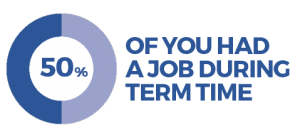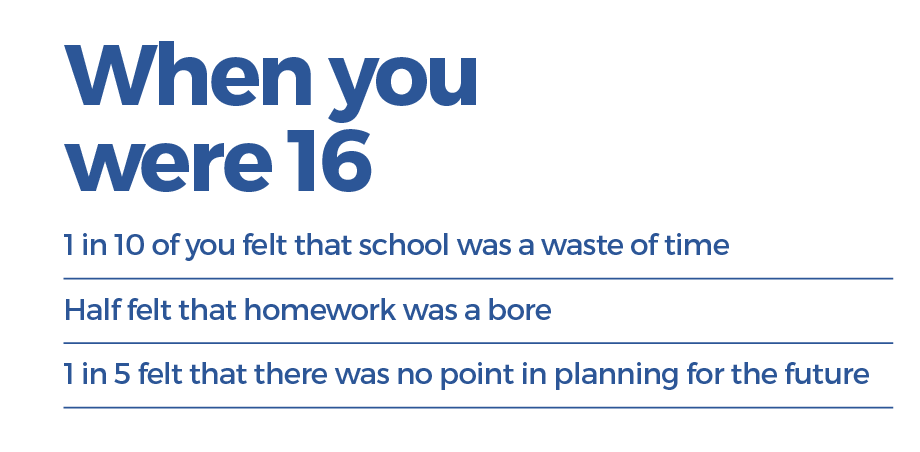The Age 16 Survey took place in 1974 and aimed to continue measuring your educational, social and physical development through adolescence. Just under 15,000 of you took part. Around 300 new participants, who had been born overseas, joined the study after moving to Great Britain.

The Age 16 survey was the last time that your parents were interviewed. Health visitors visited your homes and conducted interviews with your parents (mothers in most cases). Information was collected about your family, who you lived with, the homes you lived in, the type of work your parents were doing and their income, your health, your parents’ health, your schooling and your parent’s aspirations for your future.
You completed a paper questionnaire about your attitudes to school, your aspirations for the future in terms of jobs, education and family life, school absences, self-ratings in school subjects, spare-time work, income and pocket money, leisure activities, family relationships, smoking and drinking. You also completed a reading test and a maths test.
As at 7 and 11, the Age 16 survey also included a medical examination where your height, weight, vision, vision, hearing, speech, and motor co-ordination were measured and any other medical issues noted.
Information was collected from the school that you attended about type of school, class sizes, approaches to discipline, your attendance, behaviour, ability and the examinations you would likely be entered for. In addition, in 1978 the study team wrote to the schools you attended and asked them to provide your examination results.